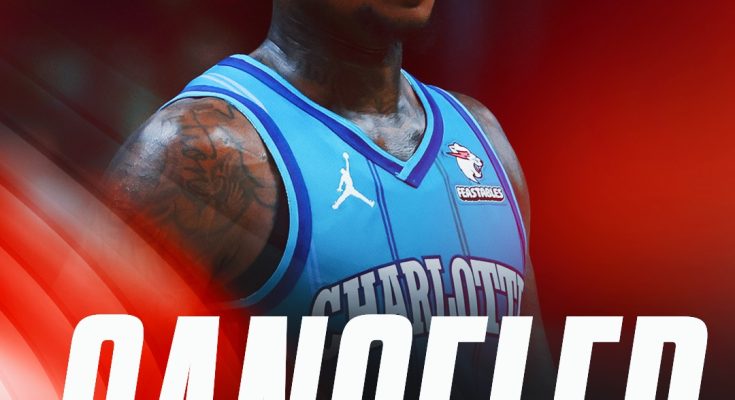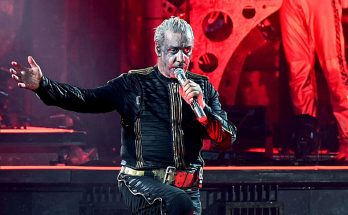The news that the Charlotte Hornets have called off a sports betting-themed night featuring former guard Terry Rozier has sent ripples through the NBA and sports community at large, not just because of what it means for the team and its relationship with its fans, but also because of the broader implications tied to sports betting, player conduct, and the increasing intertwining of professional leagues with the gambling industry. According to the South Florida Sun Sentinel, the Hornets made the decision after Rozier’s name surfaced in connection with a federal gambling probe, a revelation that immediately raised eyebrows and forced the organization to reexamine the optics and potential risks of associating themselves with such a high-profile theme night at this particular time. In an era where sports betting has become legalized and widely embraced across the United States, this development highlights the tension between promoting wagering as a revenue stream and maintaining integrity in the eyes of the public.
The Hornets originally announced the event as part of their ongoing efforts to engage fans with creative and interactive game-night themes. Sports betting nights have become more common around the league, often featuring partnerships with legal sportsbooks, interactive fan experiences, and promotional opportunities designed to capitalize on the NBA’s growing relationship with the gambling world. With Rozier, who had been a fan favorite during his tenure with Charlotte before being traded, set to headline the evening, it was positioned as an event that blended nostalgia with the modern business landscape of professional sports. The fact that Rozier was connected to the federal probe, however, made it impossible for the team to move forward without risking significant backlash.
While Rozier has not been formally charged with wrongdoing, the connection itself was enough to cast doubt and force a reevaluation of the Hornets’ plans. Professional sports leagues have long been cautious about gambling and player conduct, even as they increasingly partner with betting companies. The NBA, like other leagues, emphasizes the need for players, coaches, and officials to steer clear of any involvement in gambling activity that could compromise the integrity of the game. When the Rozier news broke, it was immediately apparent that proceeding with the betting-themed event would create a public relations nightmare for Charlotte, one that could potentially overshadow the team’s season and raise uncomfortable questions about their judgment.
The cancellation also highlights the precarious line teams and leagues walk when it comes to integrating gambling into their culture. On one hand, sports betting partnerships bring in significant revenue, provide marketing opportunities, and offer fan engagement avenues that appeal to a younger, digitally savvy demographic. On the other hand, they open the door to controversies when issues like this arise, especially when current or former players are linked, even tangentially, to investigations. The Hornets’ quick action in calling off the event demonstrates an awareness of the risks, as well as a desire to control the narrative before it spiraled further.
The federal gambling probe itself remains under wraps in terms of specifics, but its mere existence is enough to raise alarm bells. In professional sports, where integrity and perception are everything, even an unproven connection can cast a long shadow. For Rozier, a talented guard known for his scoring and grit, being tied to such a controversy has the potential to tarnish his reputation, regardless of whether he’s cleared of wrongdoing. For the Hornets, this is about damage control and ensuring they are not seen as insensitive to the gravity of such matters.
The decision to cancel also speaks to the growing scrutiny athletes face in an era where everything is magnified. Even past connections or associations can suddenly become liabilities when tied to sensitive subjects like gambling. The Hornets’ marketing team likely envisioned the night as harmless fun, but the landscape has shifted dramatically in recent years. With increased media coverage, instant social media reactions, and the ever-present concern over optics, the Hornets simply could not afford to go through with the event without risking severe reputational harm.
What makes this incident even more interesting is the broader context of how leagues have embraced sports betting since its legalization expanded across the United States in 2018. The NBA has forged partnerships with sportsbooks, integrated live betting odds into broadcasts, and allowed teams to create unique betting-related promotions. For fans, this has added a new layer of interactivity and excitement. For critics, however, it raises concerns about the potential for addiction, the vulnerability of young fans, and the risk of scandals tied to gambling. The Rozier situation underscores why critics continue to sound alarms about the blurred lines between professional athletes, teams, and the betting industry.
For the Hornets, the fallout from this cancellation will likely be limited if handled correctly. They acted swiftly and decisively, sending a message that they prioritize integrity and public perception over short-term promotional gains. The fact that they called it off rather than trying to quietly rebrand or push forward with changes shows an understanding of how sensitive this issue truly is. Fans may be disappointed at the loss of a unique theme night, but most will understand the rationale. In fact, the cancellation might even win the team credit in some circles for showing restraint in an era where financial interests often override ethical concerns.
The story also forces the NBA itself to confront the complexities of its embrace of sports betting. While the league has worked hard to promote responsible gambling and protect the integrity of its games, incidents like this illustrate just how fragile that balance is. One misstep, one player connected to the wrong investigation, and suddenly the entire ecosystem feels threatened. For Adam Silver and the league office, the Hornets’ cancellation serves as both a cautionary tale and a reminder that their role in overseeing how teams handle these situations is crucial.
Rozier’s own future may not be directly impacted in terms of his playing career, especially if he is not implicated further in the investigation. However, his marketability could take a hit. Endorsements and appearances are often tied to public image, and even if his involvement is minimal, brands may think twice about associating with him until clarity emerges. For a player who built much of his popularity on being relatable to fans and bringing energy on the court, this is an unfortunate turn of events.
The cancellation also raises questions about how teams will vet future promotional events and guest appearances. Associations that once seemed harmless might now be seen as potential risks in light of this example. It’s not far-fetched to imagine teams becoming more cautious, creating stricter guidelines, and consulting league officials more thoroughly before greenlighting similar events. While the NBA has a vested interest in promoting betting partnerships, it also has to ensure that those promotions do not inadvertently expose teams to controversy.
In many ways, this episode encapsulates the double-edged sword of the sports betting boom. On one side, it is a lucrative and engaging addition to the sports landscape, bringing fans closer to the action and creating new business opportunities. On the other, it carries inherent risks, especially when individuals connected to the game become tied to probes or investigations. The Hornets’ decision to pull the plug on their event shows an acknowledgment of those risks, and a willingness to prioritize long-term trust over short-term gains.
Looking ahead, the Hornets will need to pivot and find new ways to engage their fans that do not carry the same potential baggage. Given the creativity of NBA marketing departments, they will likely succeed in finding replacement events that are both exciting and controversy-free. But the shadow of this cancellation will linger, at least as a reminder of how quickly things can change in the world of professional sports.
For fans, this incident is a stark reminder that the players they cheer for and the teams they love operate within a larger ecosystem filled with complexities, risks, and tough decisions. The intersection of sports and gambling is here to stay, but it will continue to produce stories like this—moments where teams must weigh excitement against integrity, and where even beloved players can become cautionary tales.
In the end, the Hornets may have avoided a much larger problem by acting when they did. While the cancellation is unfortunate, it reinforces the idea that professional sports organizations must always be vigilant, always aware of how their actions are perceived, and always ready to prioritize the integrity of the game above all else. The story may fade in time, but its lessons will linger, shaping how teams across the NBA and beyond approach their partnerships with the ever-expanding sports betting industry.



